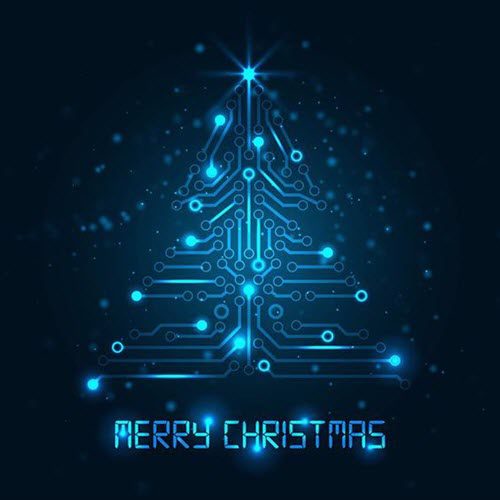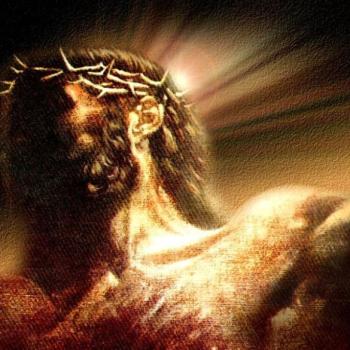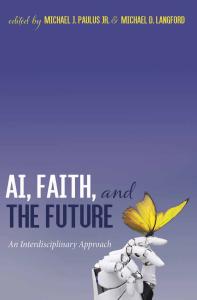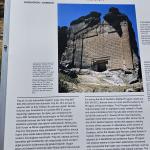
It’s Christmastime. On my list of things to do – after getting all my grades submitted and between sessions of dealing with stale emails and attending to other overdue tasks – was thinking about gifts for my kids. Like many of us, I subcontracted my imagination and deliberation to an AI tool. Microsoft Co-Pilot told me that it “couldn’t find any relevant results for [my] query,” and then proceeded to give me some relevant results for my query. However, none of the suggestions it provided were things I had not already considered – Legos, board games, art supplies, books, or outdoor toys. ChatGPT was not as self-deprecating, but it did provide the standard disclaimer of needing to consider “the specific likes and dislikes of [my] children,” a self-obvious point that made me roll my eyes until I remembered that I was asking an online tool to tell me what my kids like.
ChatGPT suggested many of the same things that Co-Pilot had, but also included things like technology (unsurprisingly), clothing and accessories (like, maybe, socks?), and, interestingly, “experiences” such as “a family trip or a special outing.” Of the eleven suggestions ChatGPT offered, this was the only one that was not a commodity I’d buy at a store. I especially appreciated that it seemed to encourage both unplugged activities and community-building. It seems that ChatGPT may have a better machine-learning-generated understanding of personhood than I do.
When it comes to theological and philosophical reflection on artificial intelligence, there are many different topics to consider, but a central one among them is what it means to be a person. Many are tempted to call this “anthropology,” and that title works, but, technically, anthropology concerns itself with what it means to be human, and there is a subtle but important distinction between “humanhood” and “personhood,” as I have written about elsewhere. As humans, you and I are living more and more into our personhood, or at least we are trying to, ideally. Put another way, perhaps we could say that there is a dynamic nature to personhood, such that it is both already and not yet.
Joshua K. Smith, author of Robot Theology (2022), in a recent interview, makes this same distinction. “A person is more than just a human being. There’s this idea in philosophy that persons are a much broader concept of what it means to relate to the world, to our environment, to animals, to inanimate objects. What I mean by persons is simply that we are inside of a narrative that is much bigger than our individual self.” In other words, while a human being is a given biological reality, a “person” exists within a vast ecosystem, one that stretches backwards and forwards in history. Theologically speaking, that ecosystem features God, both as its creator and as its most prominent node.
Of course, there are many other nodes within this ecosystem as well. Rocks, trees, animals, weather patterns, vast oceans, tiny molecules, wristwatches, phones, cars, buildings, computers, and artificial intelligences. These are all parts of creation. In one sense, humans are brothers and sisters to rocks and animals and tables and computers in the sense that they are all created things, made of the dust of the ground. We are embodied. We are made of material stuff, like everything else.
But in another sense, humans are distinct. They are unique. Anthropologists and biologists and sociologists all have different takes on how, precisely, humans are different from other created entities. Theologians do as well. For example, Augustine and Thomas Aquinas suggested that the uniqueness of humanity lies in its intellectual capacity; however, in addition to there being no biblical support for it, human uniqueness as an intellectual ability can lead to social hierarchies, not to mention marginalization of disabled communities. Positing other capacities, including moral agency, has similar problems.
German Reformed theologian Jürgen Moltmann understands human personhood as ambiguous. He affirms the physical embodiment of humanity, but he also acknowledges human “self-transcendence” – and yet the precise nature of this self-transcendence is elusive. When Moses asked God “Who am I?”, God did not give him an answer, but rather simply assured him, “I will be with you” (Ex. 3:11-12). The bible, says Moltmann, simply does not provide us with an anthropology, or any specific propositional notion of the uniqueness of humanity other than its being confronted by God in a continually “unfolding” history. In a sense, this side of the eschaton, we will never be fully human. It is only then, when we are fully ourselves, that we will know.
And yet, in being confronted by God in the here and now, we might catch a glimpse – not only of God, but of our true selves. And because we are bodily creatures wrapped up in the rest of the universe, those experiences happen in the midst of our vast, multifaceted ecosystem of human and non-human creation. Says Moltmann in The Spirit of Life (1991):
“Every experience that happens to us or that we have, can possess a transcendent, inward side. The experience of God’s Spirit is not limited to the human subject’s experience of the self. It is also a constitutive element in the experience of the ‘Thou,’ in the experience of sociality, and in the experience of nature. ‘God’s spirit fills the world and he who holds all things together knows every sound’ (Wisd. 1.7). It is therefore possible to experience God in, with and beneath each everyday experience of the world…. If experiences of God embrace experiences of life (and every existential interpretation says that they do), then – seen in reverse – experiences of life can also embrace experiences of God.”
In other words, ChatGPT is spot on! The gift of experience provides my kids an opportunity to encounter God, especially to the degree that it is an experience that intentionally engages creation, their ecosystem, in all its diverse parts, especially their fellow persons. Artificial intelligence is part of our ecosystem, and there is no reason to believe that God does not use it to confront us. To the contrary, since we cannot escape it, God confronts us only through creation, centrally in the person and work of Jesus. That does not make AI divine any more than a rock is divine. But it can be a means of grace. Even if it is in the experience of ChatGPT at Christmastime.
















